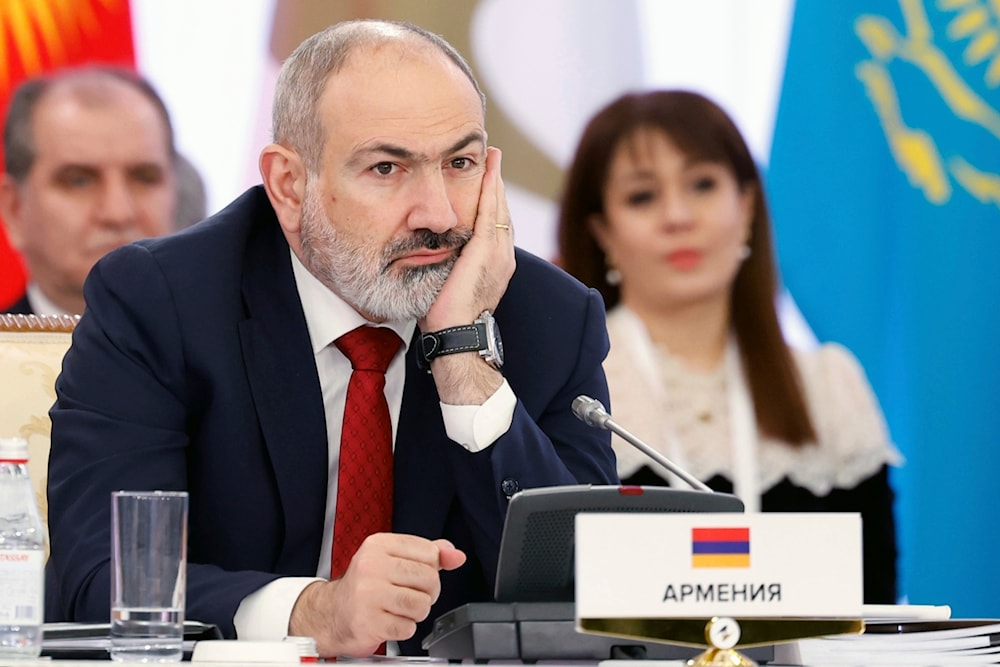Armenian PM Pashinyan calls for public discussions on EU membership
Armenian Prime Minister Nikol Pashinyan urges for dialogue on the possibility of seeking EU membership as tensions with Russia increase.
-

Armenian Prime Minister Nikol Pashinyan attends a meeting of the Eurasian Intergovernmental Council of the EAEU countries in an expanded format at the Atakent Business Cooperation Center in Moscow, Russia, Friday, February 2, 2024. (AP)
Armenian Prime Minister Nikol Pashinyan urged on Thursday for widespread public dialogue regarding a potential application for EU membership, amid deteriorating relations between the ex-Soviet nation and Russia.
The war in Ukraine has revitalized the EU's push for enlargement, prompting Brussels to formally put EU aspirants Ukraine, Moldova, and Georgia on a membership trajectory after years of uncertainty.
Armenia's move away from Moscow underscores the dissatisfaction with what the nation's government has characterized as Russia's "inability to safeguard it against security threats" posed by its arch-rival neighbor, Azerbaijan. That said, Pashinyan on Thursday said that the possibility of joining the European Union "must become a widely discussed topic in society."
His remarks followed the European Parliament's passage of a resolution this week "on closer ties between the EU and Armenia," which suggested that Yerevan's prospective membership application "could pave the way for a transformative phase in EU-Armenia relations."
"This is yet another opportunity to discuss our vision of Armenia's future," Pashinyan told a government meeting in Yerevan, adding that his cabinet "has the political will to continue working towards a maximum deepening of Armenia's ties with the EU."
Deteriorating relations
In recent months, the notion of joining the EU has been actively deliberated within Prime Minister Pashinyan's political circle, with Foreign Minister Ararat Mirzoyan and Parliament Speaker Alen Simonyan publicly expressing Armenia's European aspirations.
A divide deepened between Yerevan and Moscow since last year when Armenia accused Russia of failing to prevent Azerbaijan from seizing the breakaway region of Nagorno-Karabakh from Armenian separatists.
Pashinyan has repeatedly said that Armenia could quit the Collective Security Treaty Organisation (CSTO), a Moscow-led security alliance of several ex-Soviet republics.
On Wednesday, Russian foreign ministry spokeswoman, Maria Zakharova, warned against the move which would cause "irreparable damage" to the countries' ties.

 2 Min Read
2 Min Read








